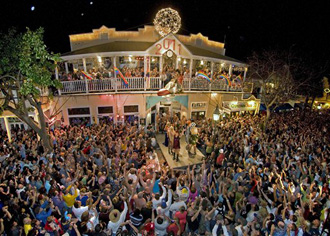To some Americans diversity is a code word for “government mandated hand up for minorities”. Even some cynical minorities — including a few Asian Americans — see this social mandate as a gravy train. The bigger fact is, diversity is giving the U.S. a big hand up in a world where competition gets more brutal by the year.
Historically, diversity has served our nation in ways that are obvious and in ways that are subtle and recondite but far more important. In years to come, our diversity is likely to become even more central to our ability to lead the world to a safer, more prosperous and more habitable place.
Historically, the more obvious examples of diversity’s practical role include the Japanese and Korean American intelligence units who helped decipher and disrupt enemy encrypted communications during World War II and the Korean War.
The 2002 John Woo movie Windtalkers spotlighted the 450 or so Navajo Marines who, during World War II, enabled swift tactical dispatches without tipping off the enemy who — it had been determined in advance — had not a single Navajo linguist. Code talking was actually pioneered by Cherokees and Choctaw soldiers serving in the U.S. Army during World War I. In addition, the Lakota, Comanche, Meskwati and even Basque soldiers helped dispense with encryption machines that were far too slow and cumbersome for the explosive battlefields of World War II.
Most of us know how the hardy Chinese were the only workers willing to take on the treacherous and grueling work of blasting tunnels and laying track through the rock formations of the High Sierras in bitter cold and snow to join east and west via the Transcontinental Railroad. And the swift rise of New York’s skyscrapers owed much to the willingness of tens of thousands of Mohawks and other Iroquois tribesmen to control the natural terror of walking iron hundreds of feet above city streets.
In more modern times, the laser focus that Asian Americans brought to mastering the complexities of semiconductor engineering and computer programming allowed a nascent Silicon Valley to explode into the center of the digital age.
Let’s not forget the African American president who rose to inspire a nation in desperate need of an eloquent, moving restatement of the hopes and dreams that have powered all our national achievements. Whatever some may say in retrospect about the precise kind of chewing gum and duct tape that Barack Obama used to keep together body and soul through the Great Recession, few would dispute that his inspiring oratory blew the panic out of our eyes and replaced it with a sense of confidence. To my mind that oratory was compelling in part because of the rhythms —sinewy, syncopated — that developed in underground jazz clubs.
Obama’s oratory embodies the kind of athletic emotionalism that could only have developed in someone acutely conscious of his fundamental difference in perspective from those who created the mess. Our society has the pool of diversity from which to draw the most desperately needed superpower. That’s our assurance of a great future.
We have now entered a decade from which many expect China to emerge on top. I have little doubt that will be the case in terms of GDP, exports, car sales, biggest skyscrapers, brilliant engineers and possibly even the number of consumers enjoying middle-class living standards. But as for becoming the nation the world looks to for the next cool thing, the best neighborhoods in which to raise the kids, great universities, hottest restaurants, a fair and decent social system and a sense of being at the throbbing center of the human enterprise, China will have to wait.
How long? At least several decades after its ruling elite attains our level of diversity.

